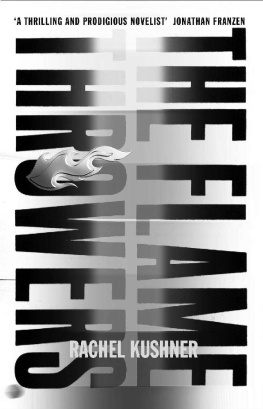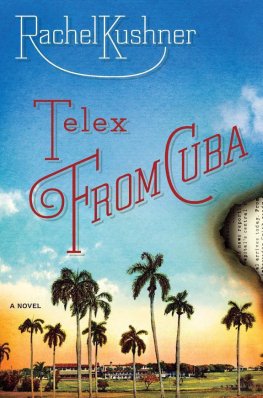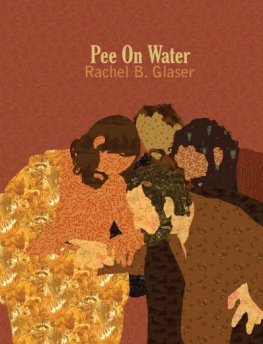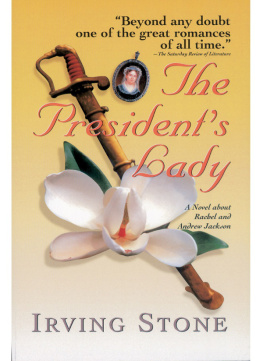Also by Rachel Kushner
Telex from Cuba
The Flamethrowers
Copyright 2015 by Rachel Kushner
All rights reserved. Except for brief passages quoted in a newspaper, magazine, radio, television, or website review, no part of this book may be produced in any form or by any means, electronic or mechanical, including photography and recording, or by any information storage or retrieval system, without permission in writing from the Publisher.
Grateful acknowledgment is made to Bomb, Soft Targets, and Descant, where these stories first appeared.
Manufactured in the United States of America
First published as a New Directions book in 2015
Design by Erik Rieselbach
The Library of Congress has cataloged the printed edition as follows:
Kushner, Rachel.
[Short stories. Selections]
The strange case of Rachel K / Rachel Kushner. First edition.
ISBN 978-0-8112-2421-5
ISBN 978-0-8112-2422-2 (e-book)
I. Title.
PS3611.U7386A6 2015
813'.6dc23 2014032864
New Directions Books are published for James Laughlin by New Directions Publishing Corporation
80 Eighth Avenue, New York 10011
Contents
Preface
One day ten years ago I sat down and for approximately twenty hours read an enormous book on the history of so-called civilization, a work of seductive details (the Peruvians believed the world was a box with a ridged top, the Egyptians that it was an egg) and an Occidental outlook, critical of every religion and ideology except the dogma of progress itself. Its successive assertionsPeople who could agree on few other facts about the remote regions of the earth somehow agreed on the geography of the afterworld and More appealing than knowledge itself was the feeling of knowingwere like the galloping of horses to me. My heart beat with their hooves. I wanted to run alongside, but with my own version of discovery and progress. I did so, by writing The Great Exception.
* * *
The Strange Case of Rachel K was something else, the name of a Cuban film made in the early 1970s, during Cubas great revolutionary film renaissance (not documented in big books about world progress). I have never seen it. It is one filmmakers interpretation of a vague historical record concerning a real person named Rachel K, a 1930s courtesan found murdered in a hotel room. I followed an instinct to build my own interpretation of her, making the record less vague, more specific, and procuring for her, as foil, another real historical figure, Christian de la Mazire, whose dubious and fascinating personal history is recounted in Marcel Ophlss documentary The Sorrow and the Pity. I started from the presumption that Rachel K definitely would not die, at least not in the way prescribed by the lessons of history. You might notice that she shares my name; I did too. Writers who have rejected logic and science, those galloping horses, take a different path, through coincidence, the cunning of reason, and mystical signs pointing in the direction that is to be taken.
* * *
Debouchment was written under some kind of spell, when the soldiers of the mind came out from their hidden posts, armed and unafraid, self-organized. If I could have written an entire book with the same density and pauses as that one short piece, I would have. Since I did not, this is what I have of its kind.
LOS ANGELES, 2014
THE GREAT EXCEPTION
.
1
I dont care that the earths shadow eclipses the moon, said the Admiral. I have seen terrific irregularity with mine own eyes, and have been forced to the sensible conclusion that this earth is not round as some wrongly insist, but the shape of a pear, or violin.
A thousand years before the Admiral made his daring proclamation and charted his course on this violin-shaped earth, people thought it was flat like a discus. Until the Greek Cartographer spoke out, claiming it was round like an orange. Hed drawn standard aesthetic divisions on his planisphere, a flattened version of his round earth. The first set of lines he called latitude. And the second set, trickier than the first, longitude. But his finest moment, his greatest act of self-control, had been to leave parts of his map blank. The Cartographer was later forgotten, his maps lost like dreams that are lost upon waking, lingering only as faint unglimpsable residues. Seafarers, with no reliable guide by which to brave the open Ocean, paddled and were wind-scooted along in landlocked, salted waters. For navigation, they dead reckoned and used wind rosesradiating lines of sixteen focal points, ornate foliations that indicated air currents but varied according to the size and dimensions of the map, so that no two maps, even of one place, were ever alike. The Cartographer was eventually remembered, but by then the forgetting had been sustained so long that no one could read Greek. The epoch after the Cartographers planisphere reigned and before it reigned againforgotten and then discovered but unreadablewas known as the Great Interruption. It lasted one thousand years.
* * *
Exploring is an undertaking of the brain. The pioneering Portuguese Navigator was one lonely man, thinking. His name was Henry. He wore a hair shirt. He died a virgin. The Portuguese, not waylaid like the rest of Europe by bloody wars, by the Hundred Years one and the other called Roses, were free to daydream. Their country faced the ocean, not the Sea-in-the-Midst-of-the-Land. This orientation gave them a taste for the formless and unfathomable, and Portuguese sailors went south toward Africa, the massive continent with friendly and also unfriendly inhabitants. But their polestar sank as they went, and so they rigged up a kind of crude latitude. They wagered on uncharted courses, and flung themselves into the Watery Unknown.
With Henrys sacrifices and his intuition there were advances. With each advance, the locating and charting of Places, the Pure Unknown was molested, and the mental bravery in revering Nothingness leaked away. Charting courses in the mind came before charting courses in the sea. The Great Exception (shortly after the Great Interruption) was the finding of the Americas, which happened on the earth before it happened in mens minds.
When the Admiral went to Her Highness to explain his astounding insight that the earth was shaped like a pear or violin, and to request the gold for his expedition, he was accidentally drunk from too much wine, and drunk as well on the heady vapors of hubris and conviction. Flushed and inspired, he got on his knee and spirited the story with more zing. He impromptu scrapped the violin thing and told Her Highness that the earth was the shape of a womans breast. He said the Breast had a protrusion at the Orient, where he wanted to sail, where the water grew warm and tumultuous. The nipple, he said, locking his onyx eyes to her green ones, tracing a breast in the air with his slim-fingered, Portuguese hands. Slim fingers he couldnt resist adorning with the ring the Cardinal had given him for luck, with a cross so large and yellow diamonds so sharply cut, that hed scratched himself with it more than once.
Pious excess would be one way to classify the jewels the Cardinal preferred, to wear and to give to explorers before they set sail. It might have been that the Cardinal had hoped the Admiral would think of him, as he wore the enormous and pointy ring. But the Admiral had thought only of the Queen, or more specifically, the Queens breast, which hed all but touched, tracing its curve and pretending to trace the earths curve. But that had only been a moment. An instrumental moment. The Admiral did not think in the manner that either the Queen or the Cardinal or most people did, of bodies and of desire. He was driven by entirely different impulses, which is why he was an explorer.














